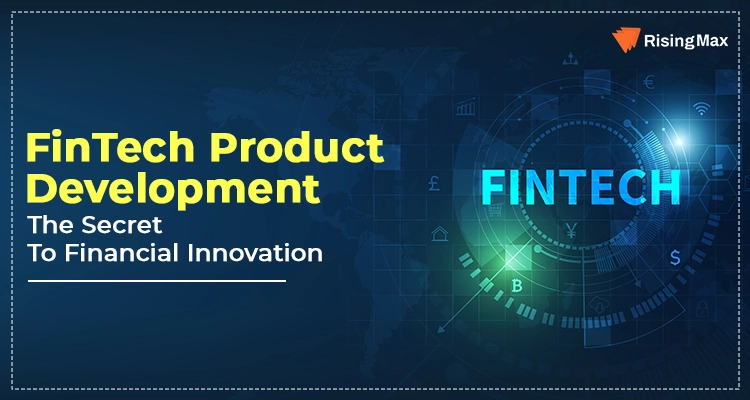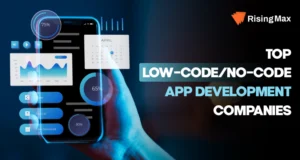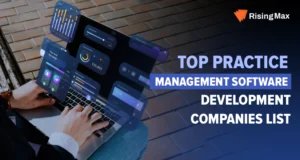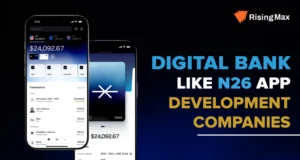Finance is one of the most lucrative but arguably complex economic sectors, as it has been for many centuries. To ensure the welfare and advancement of everyone in society, a financial system with products and services that meet the needs of businesses and consumers is essential.

The way we use money has been revolutionized by technology. Customers can purchase products online without them ever entering a physical store. Even if they live on opposite sides of the globe, families can send money to one another. Investors can purchase or sell a stock even with just one button click. These days, technology and finance go hand in hand, giving rise to the new industry known as FINTECH.
Fintechs, which use technology to deliver new and improved financial products across alternative platforms and systems, are currently upending the global finance industry. The ability to meet consumer needs and expectations by developing fintech products paves the way for the sector’s expansion.
Fintech Product Statistics

- Approximately 2.4 billion dollars were invested in American Fintech companies in 2013, and it was anticipated that this amount would rise to between 3.4 and 4.7 billion dollars in 2018. (Statista)
- Market Data Forecast predicts that in 2025 the financial technology market will be worth $305 billion.
- Fintech companies raised a record $39.6 billion in funding in 2018 alone, an increase of 120% from the previous year. (Forbes Africa)
Fintech Product Design: The Mainstay For Your Business Growth
As more people strive to become financially literate, financial technology, also known as fintech, is a popular start-up industry for entrepreneurs. The move toward handling money more wisely has inspired designers to use human-centered design principles (HCD) when developing fintech products.
Big data, data mining, and machine learning algorithms have sparked a revolution in the way we think about money by enabling the creation of user-focused software solutions. As a result, people are becoming more accustomed to the advantages of digital fintech products without having to visit their bank or speak on the phone physically.
Fintech product development has a revolutionary impact on the market today. It encourages innovation, improves customer experiences, and makes it possible to meet the changing demands of the financial sector.
A well-designed fintech product offers users convenient and effective financial services, streamlines workflows, and offers tailored solutions. Organizations can use new financial sector trends by utilizing technology, data analytics, and user-centric design by developing fintech products.
RisingMax Inc., a leading banking & financial software development company, assists financial service providers in realizing this new potential and reevaluating how they deliver their services. Our team collaborates with clients worldwide to deliver creative, disruptive, and innovative technology solutions, from banks to insurance companies and financial enterprises to start-ups in the financial sector.
Fintech Project Regulations Worldwide
US fintech product companies abide by federal and state laws. You should read the following documents to learn more about the national regulations:
EFTA, or Electronic Fund Transfer Act. EFTA protects credit cards, ATMs, and other electronic fund transfers.
FCRA, or Fair Credit Reporting Act. The FCRA governs financial institutions’ acquisition and use of consumer report data.
AML, or the Anti-Money Laundering Act. The Patriot and Bank Secrecy Acts are part of AML. These documents govern cross-border transactions and other anti-money laundering measures.
GLBA, or the Gramm-Leach-Bliley Act. GLBA requires financial services to disclose their user data storage and sharing practices.
Jumpstart Our Business Startups Act. JOBS is a list of specifications for crowdfunding websites. This act specifies disclosure, registration, and fundraising cap requirements.
Needful Trends In Fintech Technology
As the financial technology market develops, more businesses are attempting novel solutions. Let’s examine the most significant trends affecting your approach to fintech product development.
Machine Learning (ML) And Artificial Intelligence (AI)
The technologies that are frequently used in fintech solutions are AI and ML. They assist tech professionals in processing massive amounts of data, ranging from client preferences to overall financial trends.
Blockchain
Recently, there has been a lot of hype surrounding blockchain, a technology rapidly developing in the financial industry. Secure transactions and cryptocurrency as an alternative to fiat money are the two main applications of blockchain in the fintech industry.
Microservices
Microservices allow more flexibility when developing small and large applications, enable regular feature upgrades for developed solutions, and guarantee quick time-to-market for dedicated fintech developers.
Big Data
It is estimated that quintillions of data are collected daily from devices. Big Data enables fintech businesses to turn unstructured data into actionable knowledge about consumer behavior.
Align the current state of IT with your business strategy by hiring the most trustworthy Fintech Product Development Company
Fintech Product Management For Success Ensured
Managing projects effectively is essential in the Fintech sector. The complex technology systems, fintech products, and services that fintech develop, test, implement, and maintain requires efficient and effective project management.
New Financial Product Development
It includes lending platforms, mobile banking apps, investment platforms, and cryptocurrency exchanges. Teams can define the project’s scope, establish milestones, allocate resources, and manage risks with project management.
Utilizing New Technologies
Integrate cutting-edge technology, such as blockchain, AI, ML, big data analytics, cloud computing, IoT, biometric authentication, etc., into current systems. The successful implementation and seamless integration of the new technology into the business’s operations are both ensured by project management.
Regulatory Conformity
Fintechs must abide by numerous laws and regulations because they operate in a highly regulated sector. These businesses can manage compliance-related projects with project management, including conducting regulatory assessments, defining compliance requirements, testing compliance during development, etc.
Fintech Products For Your Business Growth
Every year, new areas emerge where fintech experts apply their expertise and make practical fintech products to carry out financial operations quickly. Here are the top fintech products businesses create when pursuing fintech product development. Have a look.

Online Payment Services
Many businesses still favor investing in this kind of fintech solution even though online payments and money transfers are among the most popular financial services and have many competitors. The causes are straightforward: banks and other financial institutions continue to provide slow and rigid services.
Credit And Lending
Lending Club uses peer-to-peer lending to enable users to lend money to each other (P2P lending) for business endeavors without the help of a conventional financial institution. Big Data and sophisticated analytics across digital platforms enable these innovations.
Tax Management Apps
They make it simpler to pay taxes by assisting you in keeping track of all of your income. Both individuals and businesses can use apps for managing taxes. An app for tax management is designed to make it simpler for people or businesses to abide by the tax regulations in their home country.
Insurance
Mobile apps, data science, and other time-saving techniques are used in digital insurance services to entice customers. Most users who want to speed up the otherwise agonizingly slow commission process prefer to purchase insurance online.
Financial Services
Planning and managing a budget can be done with personal finance services. These apps interest the public because they can forecast investments and analyze expenses. Check out a few personal finance apps to learn what functions users expect from a modern fintech platform.
Cryptocurrency Trading
A trading app is an ideal platform for cryptocurrency trading. The best of both worlds is available with trading apps because they let users day-trade cryptocurrencies and are simple to use. You can buy, sell, trade, and monitor cryptocurrencies on your smartphone.
Key Features Of Fintech Products
Let’s now elaborate on key feature development, one of the crucial steps for any fintech product development company. These underlying forces promote the use of fintech products and are crucial to establishing user confidence.
Simple User Interface
Today’s fintech service providers should always start by trying to make accessing their services as simple as possible. Most users anticipate a visually appealing, intuitive interface with quick sign-in from any app.
Onboarding
Determining a strategic approach to communicating how your app, and brand as a whole, can immediately enhance your customers’ time, work, and lives is equally important. And the solution to this is excellent UX.
Tailored Experience
When a product is created with their needs in mind, users love it. Users should be given the option to filter the data they receive. It’s an important strategy for luring Gen Z customers and promoting user engagement and greater involvement.
User Administration
Multi-user support is useful for some services. For instance, multiple family members frequently use financial management apps. Additionally, larger businesses prefer that employees share a single account for easier monitoring.
Communication Tools
With the help of various communication tools, fintech companies can immediately raise their customer satisfaction rate. Particularly promising options to improve a user experience while cutting costs are chatbots powered by AI.
Cybersecurity
This point, which touches everything from payments to third-party integrations, cannot be emphasized enough. With in-app certificates and third-party integrations, users prefer transparency.
Fintech Product Development Stages To Launch Your Fintech Company
Fintech products are popular, but creating one is not simple. The creation of fintech software can be improved with a few practical suggestions.
1. Ideation
We collect client requirements and determine the system’s workflow during the ideation phase. We develop user stories to assist clients in comprehending the various parts of the solution and determining the scope of the upcoming sprints.
2. Technical And Visual Design
As soon as the requirements are compiled, we get to work on the project’s technical and visual designs to get early client feedback. The UI/UX design, system blueprint, and marvel prototype are all included in this stage.
3. Creation And Implementation
For each project, we schedule sprints to ensure timely completion. Using an agile development process, we divide the implementation process into various checkpoints known as iterations.
4. Upgrades
Even after it goes live, the project is not finished. It is a continuous process instead. To make sure the software is always current, we offer post-release services.
How Much Does It Cost To Build A Fintech Product?
A typical fintech product platform can cost between $50,000 and $150,000. The following main variables have an impact on the final cost:
- Complexity (the number of features you want to use)
- Product Type
- Tech stack
- Development team
Launching a fintech business with an internal team is the most expensive and time-consuming option. Although outsourcing is more affordable, the cost will vary depending on the developer’s location. For instance, developers in the USA can expect to make between $120 and $150 per hour. Think about working with a fintech product development company if you want to gain access to one of the biggest IT hubs on the planet.
Why RisingMax Inc. For Fintech Product Development?
RisingMax Inc., a renowned white label fintech platform development company, uses accelerated technology innovation to give client partners a competitive edge. We would be happy to continue your journey with you.
Offer Full-service
Technology innovation covers a broad range of subjects, abilities, and tactics. We provide a full-service approach; each element is individually tailored to meet your needs and present a comprehensive solution.
Committed Group
RisingMax Inc. has developed into an award-winning tech company with an enviable reputation with our constantly expanding team of over 500 talented and committed programmers, developers, engineers, and strategic thinkers.
Industry Knowledge
We collaborate primarily with quickly expanding tech businesses that promote innovation and expansion within their respective sectors. Our distinctive delivery model, agile methodology, and consistently superior quality have facilitated our steady growth.
Do you need help with a Fintech project? Contact us right away to hire fintech software developers and discuss your opinions.












